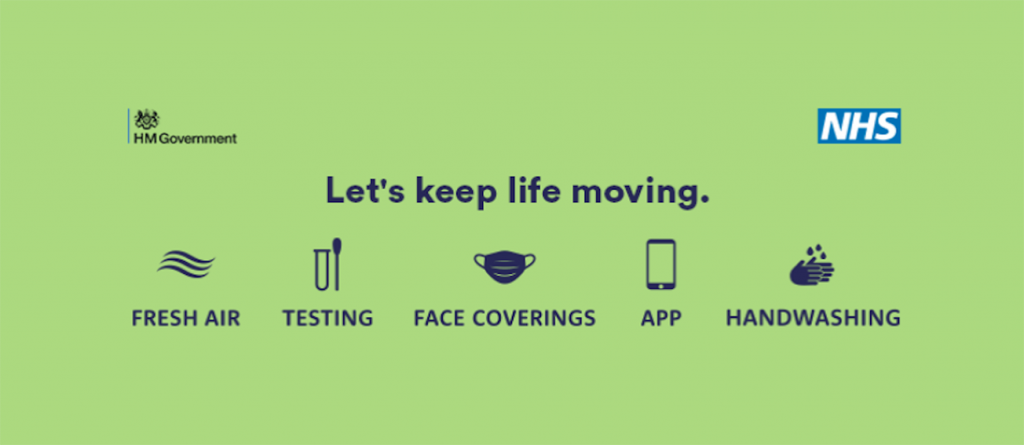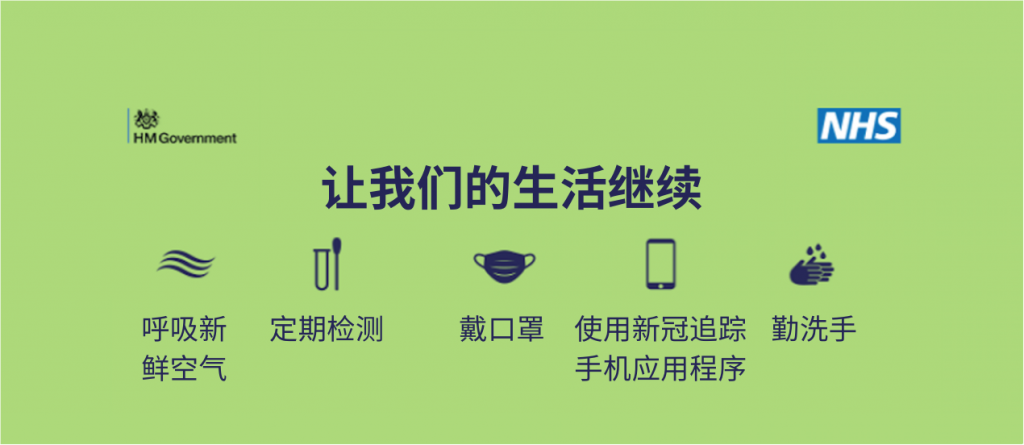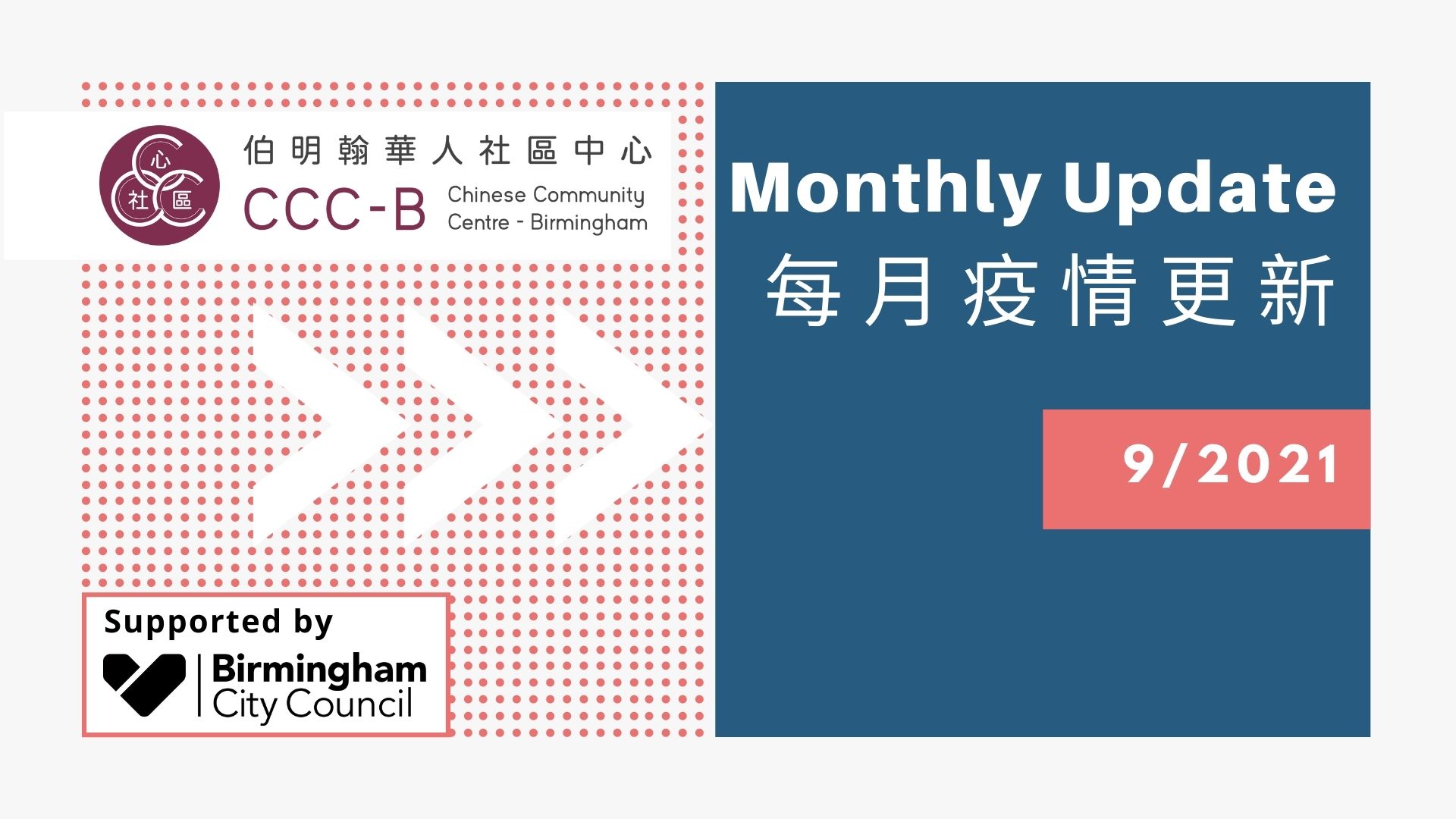I: Roadmap
With summer over and people returning to work and school, contact levels may rise and those contacts may increasingly be indoors, where the virus spreads more easily. The government published the Winter Plan on 22nd Wednesday. Their approach in England is going to try to rely almost entirely on the vaccines to protect the country from Covid this winter.
Plan A
Continuing rollout of vaccines, including the boosters and jabs for children
Plan B
This includes greater use of face coverings, Covid passports and working from home orders – a “lockdown lite” as it has been dubbed.
The government is try to find a balance that “maximises risk reduction while minimising the impacts on our lives” Plan B The measures may not seem that significant considering the nature of lockdowns previously, but if infection levels do take off the growth as fast as it was last winter and the immunity cannot keep hospital admissions at bay, this is where the Plan B comes in.
II. Test and self-isolation policy
Changes to close contact self-isolation policy
- From 16 August 2021, Double-jabbed individuals and under 18s who are identified as close contacts will be exempt from the requirement to self isolate, but NHS Test and Trace advise the person who is identified as a close contact should take a PCR test as soon as possible to check if they have the virus and for variants of concern. Order a PCR home test online or by call 119, or go to a test site.
- Fully vaccinated adults are those who received their final dose of an MHRA approved vaccine in the UK vaccination programme, at least 14 days prior to contact with a positive case.
- Unvaccinated adults who are notified of a positive close contact will continue to be asked to self isolate.
- Anyone who tests positive will still need to self isolate regardless of their age or vaccination status a legal duty will still be in place.
- Individuals should also continue to self isolate immediately if they show COVID 19 symptoms.
What happens if a pupil tests positive?
All pupils are encouraged to carry on taking twice-weekly lateral flow tests at home.
- Pupils who test positive must isolate at home for 10 days.
- The child – or their parents – will be asked to provide details about close contacts.
- Children named as close contacts will be asked to take a PCR test. They will not have to self-isolate unless they test positive themselves.
III. Vaccinations
COVID-19 booster vaccine
Booster vaccine doses will be available on the NHS for people most at risk from COVID-19 who have already had 2 doses of a vaccine. This includes:
- people aged 50 and over
- people who live and work in care homes
- frontline health and social care workers
- people aged 16 and over with a health condition that puts them at high risk of getting seriously ill from COVID-19
- carers aged 16 and over
- people aged 16 and over who live with someone who is more likely to get infections (such as someone who has HIV, has had a transplant or is having certain treatments for cancer, lupus, or rheumatoid arthritis)
- People who are pregnant and in 1 of the eligible groups can also get a booster dose.
Most people will be offered a booster dose of the Pfizer/BioNTech vaccine or Moderna vaccine. This means your booster dose may be different from the vaccines you had for your 1st and 2nd doses. Some people may be offered a booster dose of the Oxford/AstraZeneca vaccine if they cannot have the Pfizer/BioNTech or Moderna vaccine.
How and when to get your COVID-19 booster vaccine
- You’ll be offered a booster dose at least 6 months after you had your 2nd dose.
- The NHS will let you know when it’s your turn to have a booster dose. It’s important not to contact the NHS for one before then.
- Most people will be invited to book an appointment at a larger vaccination centre, pharmacy, or local NHS service such as a GP surgery.
If you have been contacted by the NHS You can book your COVID-19 booster vaccine dose online at NHS website.
Flu Vaccines
Most people who can get a COVID-19 booster vaccine are also eligible for the annual flu vaccine. The flu vaccine is given free on the NHS to people who:
- are 50 and over (including those who’ll be 50 by 31 March 2022)
- have certain health conditions
- are pregnant
- are in long-stay residential care
- receive a carer’s allowance, or are the main carer for an older or disabled person who may be at risk if you get sick
- live with someone who is more likely to get infections (such as someone who has HIV, has had a transplant or is having certain treatments for cancer, lupus or rheumatoid arthritis)
- frontline health or social care workers
You can have the NHS flu vaccine at:
- your GP surgery
- a pharmacy offering the service
- your midwifery service if you’re pregnant
- a hospital appointment
COVID-19 vaccine for Children in the UK aged 12 to 15
Across the UK pupils aged 12 to 15 will be offered a 1st dose of a COVID-19 vaccine (Pfizer) to help limit further disruption to their education.
- Parents and guardians will get a letter with information about when the vaccine will be offered.
- Most children will be given their vaccine at school.
- Some children are being offered 2 doses of the vaccine if they’re at high risk from COVID-19 or if they live with someone who is more likely to get infections
https://bit.ly/3ojDRzl << Information above from here
https://bit.ly/3mdEfNv << COVID-19 vaccination: resources for children and young people
COVID-19 has not gone away so it’s important we remain cautious. By practising key behaviours we can continue to protect ourselves and others and help stop the virus spreading.
In addition to taking a PCR test, you may also consider:
- limiting close contact with other people outside your household, especially in enclosed spaces
- wearing a face covering in enclosed spaces and where you are unable to maintain social distancing
- washing your hands with soap and water or using hand sanitiser regularly throughout the day
- limiting contact with anyone who is clinically extremely vulnerable
- continuing to take part in regular asymptomatic testing
- staying at home if unwell to reduce the risk of passing on other illnesses onto friends, family, colleagues, and others in your community

每月疫情更新: 2021年9月
I: 疫情应对路线图
随着夏季结束,民众和学生重返工作和学校,人们的社交接触会不断增多,天气变凉后,很多接触会发生在室内,在室内病毒更容易传播。 政府于22 日周三公布了冬季防疫的计划。今年冬天,英国政府将尝试全力依靠疫苗来应对新冠疫情。
A计划
继续实施疫苗接种,包括第三针加强疫苗和儿童新冠疫苗的接种
B计划
包括更广泛的佩戴口罩、使用新冠护照和在家办公 – 也称为“精简版”的疫情封锁
政府试图 “最大限度地降低疫情的风险,也同时尽量减少对民众生活的影响” 。B 计划类似以前的疫情封锁,但防控措施不会像以前那样严格。如果今年冬季的疫情感染一旦像去年冬天一样迅速增长,大量病人需要入住医院,届时B 计划将被启用。
II: 检测与自我隔离的规定
新冠密切接触者自我隔离规定更新
- 从 2021 年 8 月 16 日起,被确定为新冠密切接触者,但已经接种了两剂疫苗的个人和 18 岁以下的人士,将不需要进行自我隔离。同时,NHS检测与追踪部门建议被确定为密切接触者的人士应立即进行PCR核酸检测,以尽快检查自己是否也感染了新冠病毒,进行核酸检测也可以帮助政府了解有关新冠病毒变种的情形。家庭核酸检测包可在线预订或致电 119 预订,您也可以直接前往检测点进行核酸检测。
- 完全接种疫苗的成年人是指:已经接种了第二剂新冠疫苗(由英国药品和健康产品管理局MHRA 批准的疫苗),并超过至少 14 天以上的人士,同时在接种第二剂疫苗后的14天之内,未接触过新冠确诊阳性的人士。
- 被告知是密切接触者,未接种疫苗的成年人将继续被要求立即进行自我隔离。
- 作为法律义务和规定,任何新冠检测呈阳性的人仍然需要进行自我隔离,无论他们的年龄或疫苗接种情况如何。
- 如果个人出现新冠症状,也应立即进行自我隔离。
如果家中有学生/孩童检测新冠呈阳性时,该怎么办?
政府鼓励所有学生自行在家进行每周两次的LFT快速新冠检测。
• 新冠检测呈阳性的学生必须在家隔离 10 天。
• 学生本人 – 或其父母 – 将被要求提供所有密切接触者的详细信息。
• 被指定为密切接触者的学生将被要求进行 PCR 新冠核酸检测。 如新冠检测呈阴性,则不需要进行自我隔离。
III. 疫苗
第三针新冠加强疫苗
NHS 将为已经接种两剂新冠疫苗的高风险人士提供第三剂加强疫苗,包括:
- 50岁以上的人士
- 养老院的老人以及工作人员
- 一线医护工作者和社会护理工作者
- 16 岁及以上有基础健康问题,属新冠易感高风险的人士
- 16 岁及以上的照料者
- 16 岁及以上与属新冠高风险的人一起同住的人士(新冠高风险的人群包括艾滋病患者、接受过移植手术或正在接受某些癌症、狼疮或类风湿性关节炎治疗的人士等)
- 符合以上条件之一的孕妇也可以获得新冠加强疫苗
大多数人将获得辉瑞/BioNTech 或摩德纳/Moderna 加强疫苗,这意味着您的加强疫苗可能与您接种的第一剂和第二剂新冠疫苗会有不同。 如果某些人士无法接种辉瑞或摩德纳疫苗,他们可能会给与牛津/阿斯利康疫苗的作为加强疫苗。
流感疫苗
大多数符合接种第三针新冠加强疫苗的人士,也有资格免费接种流感疫苗。 NHS 免费向以下人群提供流感疫苗:
- 年满 50 岁(包括到 2022 年 3 月 31 日年满 50 岁的人)
- 有某些健康状况的人士
- 孕妇
- 长期居住在护理机构的人士
- 领取照料者津贴,或者是年长者或残疾人的主要照料者,如果您(照料者)生病,被照料者可能会面临危险
- 与有健康高风险的人一起同住的人士(健康高风险的人群包括艾滋病患者、接受过移植手术或正在接受某些癌症、狼疮或类风湿性关节炎治疗的人士等)
- 一线医护工作者和社会护理工作者
您可以在以下地点接种 NHS 流感疫苗:
- 您的家庭医生
- 提供流感疫苗接种服务的药房
- 如果您怀孕了,您的助产服务机构
- 医院预约
12 至 15 岁青少年新冠疫苗接种
在英国,12 至 15 岁的学生将获得第一剂新冠疫苗(辉瑞),以应对因疫情对学校教学受到的影响。
- 学生的父母或监护人将收到一封信,其中包含有关何时提供新冠疫苗的信息。
- 大多数青少年将在学校接种疫苗。
- 如果某些学生属新冠高风险的人群,或者如果他们与新冠高风险的人士一起同住,则可以接种两剂新冠疫苗
https://bit.ly/3ojDRzl<< Information above from here
https://bit.ly/3mdEfNv<< COVID-19 vaccination: resources for children and young people
新冠病毒尚未消失,因此我们仍需谨慎。通过行为的改变,我们可以继续保护自己和他人,并帮助阻止病毒的传播。
除了进行 PCR核酸检测外,建议您:
- 限制或减少与同居所以外的其他人士密切接触,尤其是在封闭空间
- 在封闭空间,以及无法保持社交距离的地方佩戴口罩
- 定期用肥皂和水洗手或使用洗手消毒液
- 限制与临床上极度脆弱的人士的接触
- 定期进行新冠快速检测
- 如出现身体不适时,请呆在家里,以减少将疾病传染给朋友、家人、同事和社区其他人的风险

没有时间阅读电子月刊?我们用声音播放出来给您听。普通话。
No time to read Covid-19 Monthly Update ebooklet? We have it on audio to read out to you. In Cantonese
沒有時間閱讀電子月刊?我們用聲音播放出來給您聽。廣東話。

